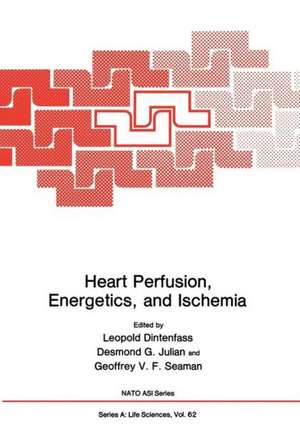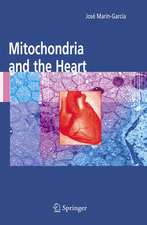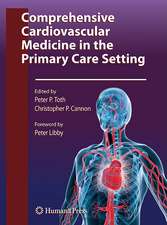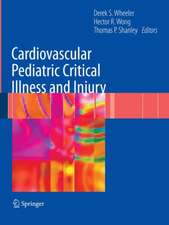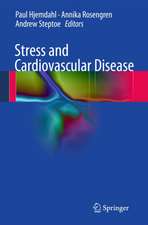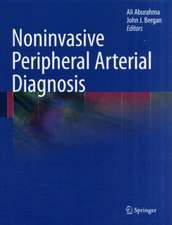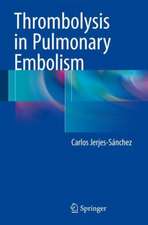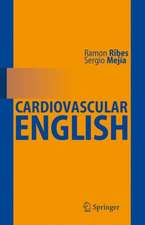Heart Perfusion, Energetics, and Ischemia: NATO Science Series A:, cartea 62
Editat de Leopold Dintenfassen Limba Engleză Paperback – 26 noi 2012
Din seria NATO Science Series A:
- 15%
 Preț: 643.29 lei
Preț: 643.29 lei - 15%
 Preț: 641.89 lei
Preț: 641.89 lei - 15%
 Preț: 664.63 lei
Preț: 664.63 lei -
 Preț: 389.39 lei
Preț: 389.39 lei - 5%
 Preț: 370.28 lei
Preț: 370.28 lei -
 Preț: 389.77 lei
Preț: 389.77 lei - 18%
 Preț: 1207.41 lei
Preț: 1207.41 lei - 5%
 Preț: 716.85 lei
Preț: 716.85 lei -
 Preț: 404.85 lei
Preț: 404.85 lei - 15%
 Preț: 636.09 lei
Preț: 636.09 lei - 5%
 Preț: 362.03 lei
Preț: 362.03 lei -
 Preț: 399.37 lei
Preț: 399.37 lei - 5%
 Preț: 2118.28 lei
Preț: 2118.28 lei -
 Preț: 399.21 lei
Preț: 399.21 lei -
 Preț: 388.44 lei
Preț: 388.44 lei - 15%
 Preț: 650.50 lei
Preț: 650.50 lei -
 Preț: 379.59 lei
Preț: 379.59 lei -
 Preț: 385.25 lei
Preț: 385.25 lei -
 Preț: 390.36 lei
Preț: 390.36 lei -
 Preț: 393.18 lei
Preț: 393.18 lei - 15%
 Preț: 665.09 lei
Preț: 665.09 lei -
 Preț: 387.16 lei
Preț: 387.16 lei - 18%
 Preț: 933.10 lei
Preț: 933.10 lei - 15%
 Preț: 641.20 lei
Preț: 641.20 lei -
 Preț: 393.93 lei
Preț: 393.93 lei -
 Preț: 393.18 lei
Preț: 393.18 lei - 15%
 Preț: 642.02 lei
Preț: 642.02 lei -
 Preț: 386.77 lei
Preț: 386.77 lei -
 Preț: 376.76 lei
Preț: 376.76 lei - 5%
 Preț: 387.66 lei
Preț: 387.66 lei - 5%
 Preț: 1392.73 lei
Preț: 1392.73 lei - 15%
 Preț: 638.17 lei
Preț: 638.17 lei -
 Preț: 392.05 lei
Preț: 392.05 lei -
 Preț: 379.22 lei
Preț: 379.22 lei - 5%
 Preț: 378.35 lei
Preț: 378.35 lei -
 Preț: 395.80 lei
Preț: 395.80 lei - 15%
 Preț: 638.35 lei
Preț: 638.35 lei -
 Preț: 385.99 lei
Preț: 385.99 lei - 5%
 Preț: 368.85 lei
Preț: 368.85 lei -
 Preț: 392.23 lei
Preț: 392.23 lei - 5%
 Preț: 381.02 lei
Preț: 381.02 lei -
 Preț: 392.60 lei
Preț: 392.60 lei - 5%
 Preț: 725.61 lei
Preț: 725.61 lei - 18%
 Preț: 1200.32 lei
Preț: 1200.32 lei - 5%
 Preț: 378.69 lei
Preț: 378.69 lei -
 Preț: 413.33 lei
Preț: 413.33 lei
Preț: 413.92 lei
Nou
Puncte Express: 621
Preț estimativ în valută:
79.23€ • 83.08$ • 65.46£
79.23€ • 83.08$ • 65.46£
Carte tipărită la comandă
Livrare economică 30 ianuarie-13 februarie 25
Preluare comenzi: 021 569.72.76
Specificații
ISBN-13: 9781475703955
ISBN-10: 1475703953
Pagini: 720
Ilustrații: XI, 707 p. 67 illus.
Dimensiuni: 178 x 254 x 38 mm
Greutate: 1.23 kg
Ediția:Softcover reprint of the original 1st ed. 1983
Editura: Springer Us
Colecția Springer
Seria NATO Science Series A:
Locul publicării:New York, NY, United States
ISBN-10: 1475703953
Pagini: 720
Ilustrații: XI, 707 p. 67 illus.
Dimensiuni: 178 x 254 x 38 mm
Greutate: 1.23 kg
Ediția:Softcover reprint of the original 1st ed. 1983
Editura: Springer Us
Colecția Springer
Seria NATO Science Series A:
Locul publicării:New York, NY, United States
Public țintă
ResearchCuprins
1: Keynote Lectures on Multidisciplinary Approach to Heart Failure, Ischemia, and Infarction.- Different Factors in Death from Coronary Disease.- Blood Hyperviscosity in Heart Performance and Ischaemia: Heat Transfer and Stress.- Discussion Comments and Responses.- 2: Heart as the Pump: Work Output.- The Human Heart as a Pump.- The Heart as a Muscle and a Pump: Ventricular Function of the Heart in Ischemic Heart Disease.- Control of Cardiac Output in Sustained Essential Hypertension: A Biomathematical Approach.- Discussion The Heart as a Muscle and a Pump.- 3: Microcirculation and Myocardial Perfusion.- The Coronary Arteries.- The Coronary Microcirculation.- Microcirculation in Myocardium and Cerebral Cortex.- Subendocardial Ischemia in the Absence of Coronary Artery Disease.- Pharmacological Approach to Perfusion.- Ischemia in the Heart due to Atherosclerotic Mechanisms, Flow Anomalies and Vascular Spasm.- Discussion Comments and Responses.- 4: Ischemia and Infarction: Cellular, Humoral and Viscosity Aspects.- Mechanism of Cell Death in Myocardial Ischaemia.- Role of Platelets and Biophysical Factors in Thrombosis and Atherosclerosis.- Blood Viscosity in Myocardial Infarction.- Whole Blood Viscosity and Ischemic Heart Disease.- Calcium and Erythrocyte Microrheology: Pharmacological Applications.- Discussion A Potential Role for Plasma Proteins in Hyper-Viscosity and Capillary Sludging with Special Reference to Myocardial Ischaemia.- Comments on Blood Rheology in Coronary Heart Disease.- A Clinical Perception of the Role of Blood Viscosity.- 5: Myocardial Metabolism: Proteins, Metabolites and Ion Exchange.- Cardiac Protein Synthesis in Stress: Overload, Ethanol, and Anoxia.- Molecular Biology of Intercellular Matrix Macromolecules in Relation to the Cardiovascular System.- Thermal Transitions in Collagenous Tissues as Sensors of the Environment.- Cardiac Metabolites: The Importance of Supply and Demand.- Metabolites in Shock.- Calcium Exchange in the Heart.- Appendix to the Calcium Exchange in the Heart.- Calcium in Ischaemic Heart.- Discussion Proteoglycans and Glycosaminoglycans in Heart Valves.- Calcium Exchange I.- Calcium Exchange II: Sarcolemmal Fluxes Associated with Contraction of Heart Muscle.- Calcium Exchange III.- Comments and Responses.- 6: Thermodynamics and Heat Transfer.- The Cardiovascular System and Heat Transfer.- Energy Transfer in the Heart.- Thermodynamics and Cardiac Energetics.- Temperature Distribution and Transport of Heat in the Canine Myocardium.- Temperature Sensitivity Coefficients of Heat Transfer Processes in Myocardium, with Special Reference to the Determination of Tissue Perfusion.- Steady State Heat Transfer in the Left Ventricle.- Appendix to the Steady Heat Transfer in the Left Ventricle.- Discussion Comment on Myocardial Temperature and Blood Flow Distribution.- Comment on Existence of “Hot Spots”.- Comments and Responses.- 7: Summary, Conclusions and Perspectives.- Viewpoint on Heart Disease and Public Health.- Congestive Heart Failure is not Due to Low Cardiac Output per se.- Energy Transformation in the Heart.- Problems in Calcium Exchange.- Recommendations for Future Work on Metabolites.- Role of Microrheology of Blood (Hyperviscosaemia).- Viewpoint on Collagen Transition and Collagen as a Temperature Sensor.- Perspectives.- List of Participants.
